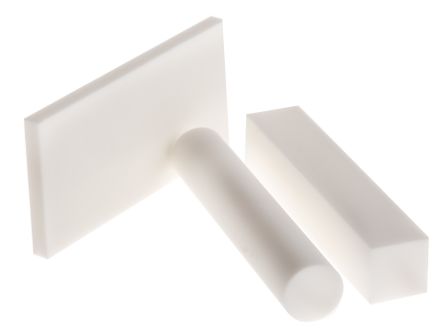- Automation & Control Gear
- Cables & Wires
- Enclosures & Server Racks
- Fuses & Circuit Breakers
- HVAC, Fans & Thermal Management
- Lighting
- Relays & Signal Conditioning
- Switches
- Batteries & Chargers
- Connectors
- Displays & Optoelectronics
- ESD Control, Cleanroom & PCB Prototyping
- Passive Components
- Power Supplies & Transformers
- Raspberry Pi, Arduino, ROCK, STEM Education & Development Tools
- Semiconductors
Ceramic Material Kits
Ceramic kits are packs built up of different ceramic materials including Sheets, Bars and Rods. They are easily machinable and have excellent resistance to high temperatures, abrasives and chemicals with low thermal conductivity. Although the nature of ceramics means that some may show poor shock resistance, they are tough and highly polish-able considering their comparatively low densities.
What are ceramics?
Comprised of non-organic, non-metallic materials, they are radiation resistant and lead free. Ceramics hold tight tolerances for electrical insulators with zero porosity and no out-gassing, they can also be soldered to a wide range of materials.
Ceramic sheets, boards, rods and bars can be used in a variety of industrial applications including:
- Constant and high vacuum environments
- Laser technology
- Semiconductors and Electronics
- Aerospace
- Space technologies and similar industries
- Medical and laboratory equipment.
Types of ceramics
Machinable glass ceramic - Recognised worldwide to be a major technological innovation, as well as a technical solution for a wide range of industrial applications.
Glass - not always considered a ceramic because of its amorphous (noncrystalline) character. However, its mechanical properties are similar to ceramic materials and glass-making itself involves several steps of the ceramic process.
Bio ceramics - Specially formulated to have suitable bio-compatibility for biotechnology and medical applications.
How are ceramic material made?
Ceramics are usually made by mixing together clay, earthen elements, powders and water. They are then shaped into whatever form they will be used to produce the desired outcome. After this has been done the Ceramic is then fired in a high temperature oven known as a kiln.
Ceramics are generally made by taking mixtures of clay, earthen elements, powders, and water and shaping them into desired forms. Once the ceramic has been shaped with precision, it is fired in a high-temperature oven known as a kiln.

